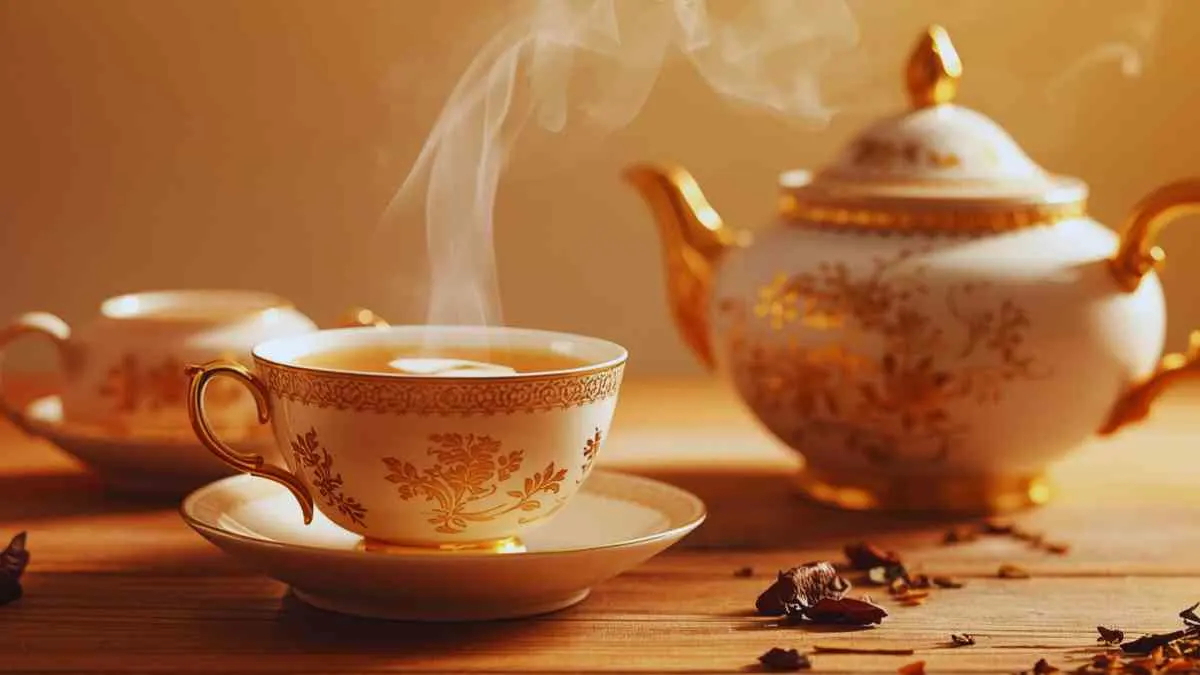For many people, the day begins with either a steaming cup of tea or a bold brew of coffee.
Both beverages are loved globally—not just for their taste and ritual, but also for the potential health benefits they carry.
But when you zoom out and ask: Tea or Coffee Which Is Better For Health ? the answer isn’t a simple one. It depends on your health goals, your sensitivity to caffeine, and how you prepare your drinks.
Compare tea and coffee side‑by‑side, examine their unique benefits and risks, and help you decide which might be the smarter choice for you.
The Health Benefits of Tea:

Tea (including green, black, oolong and herbal varieties) offers a rich mix of antioxidants and bioactive compounds. According to health authorities:
-
Tea is “rich in antioxidants like polyphenols, which help reduce chronic inflammation and neutralize cell‑damaging free radicals.” Harvard Health+2Healthline+2
-
A Healthline article states:
“Coffee and tea offer similar health benefits, including weight loss, anticancer, and energy‑boosting properties.” Healthline
Here are some specific benefits of tea:
-
Cardiovascular support: Regular tea consumption (especially green or black tea) is associated with lower blood pressure and improved cholesterol levels. TIME+2WebMD+2
-
Gentler caffeine effect: Tea usually has less caffeine than coffee, which means less of a “jolt” and less risk of jitters, yet still offers alertness. Black Girls Hike+1
-
Digestive and calming benefits: Herbal teas (such as peppermint, chamomile) are often touted for soothing digestion or reducing anxiety—areas where coffee may not excel.
-
Weight management & metabolic effects: Some teas (especially green tea) may help with fat oxidation and metabolic rate. Healthline
The Health Benefits of Coffee:

Coffee, too, is more than just a pick‑me‑up; it comes with a strong body of research backing numerous health effects:
-
According to Johns Hopkins Medicine, coffee may help you live longer; support better glucose (sugar) metabolism; reduce risk of certain cancers; improve liver health; and lower risk of neurodegenerative diseases. Johns Hopkins Medicine+1
-
Coffee’s antioxidants and caffeine can boost physical performance, mental alertness and cognitive function. Healthline+1
-
A recent NIH‑funded study found drinking coffee before noon was linked to lower all‑cause mortality and cardiovascular disease risk. nhlbi.nih.gov
Comparing Tea vs Coffee | Tea or Coffee Which Is Better For Health:
Tea and coffee both offer health benefits but in different ways. Tea, especially green and herbal varieties, is rich in antioxidants, supports hydration, and can promote relaxation due to compounds like L-theanine. It’s generally lower in caffeine, making it a gentler option for some. Coffee, on the other hand, provides a stronger caffeine boost, enhancing alertness and focus, and may support metabolism and fat burning.
However, excessive coffee can lead to jitteriness or digestive issues. Both beverages can be part of a healthy diet, with tea offering a milder, more calming option, while coffee provides a more stimulating effect.
| Factor | Tea | Coffee |
|---|---|---|
| Caffeine content | Lower (e.g., ~20‑45 mg for green tea, ~40‑70 mg for black) Black Girls Hike+1 | Higher (a standard cup ~95 mg or more) Black Girls Hike+1 |
| Energy/kick | Gentle, steadier release (often aided by L‑theanine in tea) | Stronger, faster boost—but may cause jitters if sensitive |
| Antioxidants & polyphenols | Very good—especially green & black teas Harvard Health+1 | Also excellent; coffee is a major dietary source of antioxidants Healthline |
| Health outcome research | Good evidence for cardiovascular, longevity and metabolic benefits The Scottish Sun+1 | Strong evidence for longevity, reduced risk of many diseases—type 2 diabetes, liver disease, etc. Healthline+1 |
| Caffeine‑related risk | Lower risk of caffeine‑side effects for most people | Higher caffeine means higher risk of overstimulation, sleep disruption, heart palpitations in sensitive individuals National Geographic |
| Best bets | If you’re sensitivity to caffeine, want calming focus, good cardiovascular and digestive support | If you want strong energy boost, performance, metabolic and disease‑prevention benefits |
So Which Is Better for Most People?
There’s no universal “winner.” Instead, choose based on your needs and how your body responds. Here are some scenarios:
-
If you want a milder caffeine effect with calming benefits, good for the nervous system and digestion → Tea may win.
-
If you need strong mental or physical performance, or you’re looking for disease‑risk reduction via high antioxidant load → Coffee may be more appropriate.
-
If you have sensitivity to caffeine, sleep problems, anxiety or acid reflux: lean toward tea or decaffeinated options.
-
If you prepare your beverages poorly (e.g., adding lots of sugar, cream, syrup) you may negate benefits regardless of tea vs coffee.
Read Next: How To Prepare Matcha Tea
Practical Tips for Both:
Regardless of which you choose, keep the following in mind:
-
Drink in moderation. Most guidelines suggest up to 400 mg caffeine per day is safe for most healthy adults. PMC+1
-
Watch your additions. Sugar, flavored syrups, heavy creamers can turn a healthy cup into an indulgent one.
-
Mind timing. For coffee at least, morning consumption before noon seems to maximize benefits and minimize sleep disruption. nhlbi.nih.gov
-
Choose quality. Higher quality tea leaves or freshly brewed coffee (versus heavily processed instant) tend to deliver more benefit.
-
Be mindful of individual health. If you have high blood pressure, arrhythmia, digestive issues, or are pregnant, seek personalized advice.
Common Questions (FAQs):
1. Does coffee or tea help you live longer?
Yes — both have been associated with reduced all‑cause mortality. For example, meta‑analyses show up to four cups/day of coffee linked with lower risk of death; and long‑term tea drinkers show cardiovascular benefit too. PMC+1
2. Is tea better for your heart than coffee?
Tea has very good evidence for cardiovascular protection (especially due to polyphenols). Coffee also shows heart health benefits, though for some people caffeine may raise blood pressure temporarily. The Washington Post
3. Which is better for weight management: tea or coffee?
Both can help. Tea (especially green) helps with fat oxidation and metabolism. Coffee also boosts metabolic rate and supports fat burning. The key: when consumed in a healthy way (no excess sugar) and paired with good diet/exercise. The Times of India
4. Are there risks to drinking either?
Yes. For coffee: high caffeine can cause insomnia, palpitations, anxiety, raise blood pressure in some. PMC For tea: some teas may affect iron absorption or contain caffeine too. Both become less healthy if loaded with sugar/cream.
5. Can I drink both tea and coffee?
Yes. Many people do—and some recent studies show combined intake may even reduce certain risks more than either alone. Balance and moderation are key. Health

